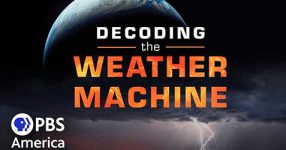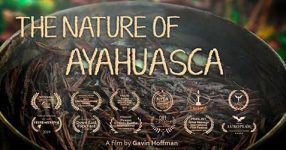In the opening frames of the thought-provoking 2021 documentary Eating Our Way to Extinction, directed by Ludo and Otto Brockway, a colossal tree, a fixture in its ecosystem for centuries, crashes to the ground, taking smaller trees with it. This poignant scene sets the tone for the film, unveiling how our dietary choices are steering climate change, wreaking havoc on our environment, and jeopardizing public and personal health. The documentary leaves an indelible message: the most impactful personal action we can take to combat planetary destruction and safeguard our well-being is embracing a whole-food, plant-based diet while relinquishing animal products.
Beyond Veganism: A Tragedy Unfolds
Eating Our Way to Extinction may seem like a vegan-centric film, but it transcends dietary transitions. It’s a tragedy, narrating how we are witnessing the gradual demise of the planet and the ecosystems that sustain us. The tragedy begins with the heart-wrenching tales of indigenous communities losing their homes and witnessing the destruction of the forests they’ve harmoniously coexisted with for generations. These sacred lands are now razed for soy cultivation, replacing the once-mighty Amazon rainforest.
The narrative progresses to highlight a multitude of challenges caused by modern industry and agriculture. It touches on global warming, extreme weather events, antibiotic resistance, plastic pollution in the oceans, and other factors contributing to planetary degradation. The focus isn’t merely on the suffering of animals on factory farms but on the agony of the planet itself.
A Beacon of Hope: The Plant-Based Path
However, the film doesn’t leave us in despair. Instead, it provides a ray of hope through the adoption of a plant-based diet. Shifting towards plant-based eating isn’t just a responsible choice; it’s also incredibly delicious, with options closely resembling animal-derived products. Moreover, a whole-food, plant-based diet promises improved health, increasing longevity, and reducing the risk of various diseases.
A Collaborative Effort for Change
Eating Our Way to Extinction received funding from a diverse array of sources, including an Indiegogo campaign that raised over $175,000, backed by 1,564 individual donors. Several organizations joined forces with the filmmakers in their mission, including Veganuary, Ecosia, The Baum Foundation, OWC, Plant Based News, Fathom Events, Blue Horizon, The Perfect World Foundation, The LiveKindly Co., and Veg Capitol.
The Far-reaching Consequences of Our Dietary Choices
Every meal we consume has the power to impact our planet significantly. Opting for animal products contributes to multiple crises, including deforestation, ocean degradation, and the proliferation of antibiotic-resistant microorganisms. Forests and trees are sacrificed to make room for the livestock we desire and the food they require, devastating not only biodiversity-rich environments like the Amazon but also the indigenous communities living in harmony with them for generations.
In influential nations, the agriculture industry holds substantial sway over policies, pushing for measures that favor their interests and thwarting those that threaten their profits.
The Devastating Impact of Fisheries
Whether wild-caught or farmed, our seafood choices play a pivotal role in the depletion of our oceans. Since the 1950s, 90% of large fish have been harvested from the seas. Farming practices on land and in aquaculture operations contaminate water with chemicals and pesticides.
The Antibiotic Crisis
Approximately two-thirds of antibiotics used worldwide are administered to animals, fostering antibiotic resistance. This, combined with unhygienic conditions on factory farms, creates breeding grounds for disease, posing a severe threat to public health.
Backed by Credible Sources
The film substantiates its claims with references from reputable sources, including academic journals like Nature, research from institutions such as Florida International University, and reports from international governing bodies like the FAO and the UN.
Voices of Experts
Eating Our Way to Extinction is enriched by insights from industry professionals, first-hand experiences, and accounts from agricultural staff and activists, ensuring both a captivating and factually accurate narrative.
A Call to Action
Narrated by Academy Award-winning actress Kate Winslet, Eating Our Way to Extinction is a powerful exploration of the consequences of industrial animal agriculture on the environment, public health, and animal welfare. The film leaves no stone unturned in its examination of intensive animal farming’s global impact, from greenhouse gas emissions to deforestation, water pollution, and biodiversity loss.
Confronting Ethical Dilemmas
The documentary delves into the ethical dimensions of animal agriculture, exposing the inhumane conditions and treatment of factory-farmed animals. Shocking footage from inside these facilities unveils the cruelty that often remains hidden from public view.
A Path to Sustainable Change
The film underscores the urgency of shifting towards sustainable and ethical food choices, advocating for reduced meat consumption and support for humane and eco-friendly food production systems. Interviews with farmers, chefs, and activists reveal real-world examples of positive change, including regenerative agriculture, which focuses on soil health, ecosystem restoration, and carbon emission reduction.
A Compelling Case for Change
By laying bare the devastating impact of industrial animal agriculture and offering hope for a better future, Eating Our Way to Extinction compels us to reconsider our relationship with animals and our food production and consumption. It offers insights into potential solutions to mitigate the impact of animal agriculture.
Eating Our Way to Extinction, directed by Ludo and Otto Brockway, is an eye-opening journey that underscores the urgency of transforming our food production systems. Its potent message, coupled with compelling visuals and insights from leading experts, makes it essential viewing for those concerned about our planet’s future, the welfare of animals, and the well-being of humanity. The film serves as a powerful catalyst for creating a more compassionate and sustainable world.












